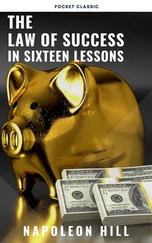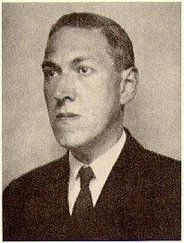One could almost understand her words as she flogged the poor Airedale from one corner to another, keeping up a series of rapid-fire sounds which for all the world resembled the remonstrations of an angry mother who had been called upon to defend her offspring from an attack by older boys.
The Airedale was a poor soldier! After running around the barn from corner to corner for about two minutes he spread himself on the ground as flat as he could and did his best to protect his eyes with his paws. Mrs. Hen seemed to be making a special attempt to peck out his eyes.
The owner of the hen then stepped in and retrieved her — or, more accurately stating it, he retrieved the dog — which in no way appeared to meet with the dog’s disapproval.
The next day a chicken was placed in the cellar where the dog slept. As soon as he saw the bird he tucked his tail between his legs and ran for a corner! He never again attempted to catch a chicken. One lesson in social heredity, via the sense of “touch,” was sufficient to teach him that while chicken-chasing may offer some enjoyment, it is also fraught with much hazard.
All these illustrations, with the exception of the first, describe the process of gathering knowledge through direct experience. Observe the marked difference between knowledge gathered by direct experience and that which is gathered through the training of the young by the old, as in the case of the ruffed grouse and her young.
The most impressive lessons are those learned by the young from the old, through highly colored or emotionalized methods of teaching. When the mother grouse spread her wings, stood her feathers on end, shook herself like a man suffering with the palsy and chattered to her young in a highly excited manner, she planted the fear of man in their hearts in a manner which they were never to forget.
The term “social heredity,” as used in connection with this lesson, has particular reference to all methods through which a child is taught any idea, dogma, creed, religion or system of ethical conduct, by its parents or those who may have authority over it, before reaching the age at which it may reason and reflect upon such teaching in its own way; estimating the age of such reasoning power at, let us say, seven to twelve years.
There are myriads of forms of fear, but none are more deadly than the fear of poverty and old age. We drive our bodies as if they were slaves because we are so afraid of poverty that we wish to hoard money for — what — old age! This common form of fear drives us so hard that we overwork our bodies and bring on the very thing we are struggling to avoid.
What a tragedy to watch a man drive himself when he begins to arrive along about the forty-year mile post of life-the age at which he is just beginning to mature mentally. At forty a man is just entering the age in which he is able to see and understand and assimilate the handwriting of Nature, as it appears in the forests and flowing brooks and faces of men and little children, yet this devil fear drives him so hard that he becomes blinded and lost in the entanglement of a maze of conflicting desires. The principle of organized effort is lost sight of, and instead of laying hold of Nature’s forces which are in evidence all around him, and permitting those forces to carry him to the heights of great achievement, he defies them and they become forces of destruction.
Perhaps none of these great forces of Nature are more available for man’s unfoldment than is the principle of Auto-suggestion, but ignorance of this force is leading the majority of the human race to apply it so that it acts as a hindrance and not as a help.
Let us here enumerate the facts which show just how this misapplication of a great force of Nature takes place:
Here is a man who meets with some disappointment; a friend proves false, or a neighbor seems indifferent. Forthwith he decides (through selfsuggestion) all men are untrustworthy and all neighbors unappreciative. These thoughts so deeply imbed themselves in his subconscious mind that they color his whole attitude toward others. Go back, now, to what was said in Lesson Two, about the dominating thoughts of a man’s mind attracting people whose thoughts are similar.
Apply the Law of Attraction and you will soon see and understand why the unbeliever attracts other unbelievers.
Reverse the Principle:
Here is a man who sees nothing but the best there is in all whom he meets. If his neighbors seem indifferent he takes no notice of that fact, for he makes it his business to fill his mind with dominating thoughts of optimism and good cheer and faith in others. If people speak to him harshly he speaks back in tones of softness. Through the operation of this same eternal Law of Attraction he draws to himself the attention of people whose attitude toward life and whose dominating thoughts harmonize with his own.
Tracing the principle a step further:
Here is a man who has been well schooled and has the ability to render the world some needed service. Somewhere, sometime, he has heard it said that modesty is a great virtue and that to push himself to the front of the stage in the game of life savors of egotism. He quietly slips in at the back door and takes a seat at the rear while other players in the game of life boldly step to the front. He remains in the back row because he fears “what they will say.”
Public opinion, or that which he believes to be public opinion, has him pushed to the rear and the world hears but little of him. His schooling counts for naught because he is afraid to let the world know that he has had it. He is constantly suggesting to himself (thus using the great force of Auto-suggestion to his own detriment) that he should remain in the background lest he be criticized, as if criticism would do him any damage or defeat his purpose.
Here is another man who was born of poor parents. Since the first day that he can remember he has seen evidence of poverty. He has heard talk of poverty. He has felt the icy hand of poverty on his shoulders and it has so impressed him that he fixes it in his mind as a curse to which he must submit. Quite unconsciously he permits himself to fall victim of the belief “once poor always poor” until that belief becomes the dominating thought of his mind. He resembles a horse that has been harnessed and broken until it forgets that it has the potential power with which to throw off that harness. Auto-suggestion is rapidly relegating him to the back of the stage of life.
Finally he becomes a quitter. Ambition is gone. Opportunity comes his way no longer, or if it does he has not the vision to see it. He has accepted his FATE! It is a well established fact that the faculties of the mind, like the limbs of the body, atrophy and wither away if not used. Self-confidence is no exception. It develops when used but disappears if not used.
One of the chief disadvantages of inherited wealth is the fact that it too often leads to inaction and loss of Self-confidence. Some years ago a baby boy was born to Mrs. E. B. McLean, in the city of Washington. His inheritance was said to be around a hundred million dollars. When this baby was taken for an airing in its carriage it was surrounded by nurses and assistant nurses and detectives and other servants whose duty was to see that no harm befell it. As the years passed by this same vigilance was kept up. This child did not have to dress himself; he had servants who did that. Servants watched over him while he slept and while he was at play. He was not permitted to do anything that a servant could do for him. He had grown to the age of ten years. One day he was playing in the yard and noticed that the back gate had been left open. In all of his life he had never been outside of that gate alone, and naturally that was just the thing that he wished to do. During a moment when the servants were not looking he dashed out at the gate, and was run down and killed by an automobile before he reached the middle of the street.
Читать дальше












